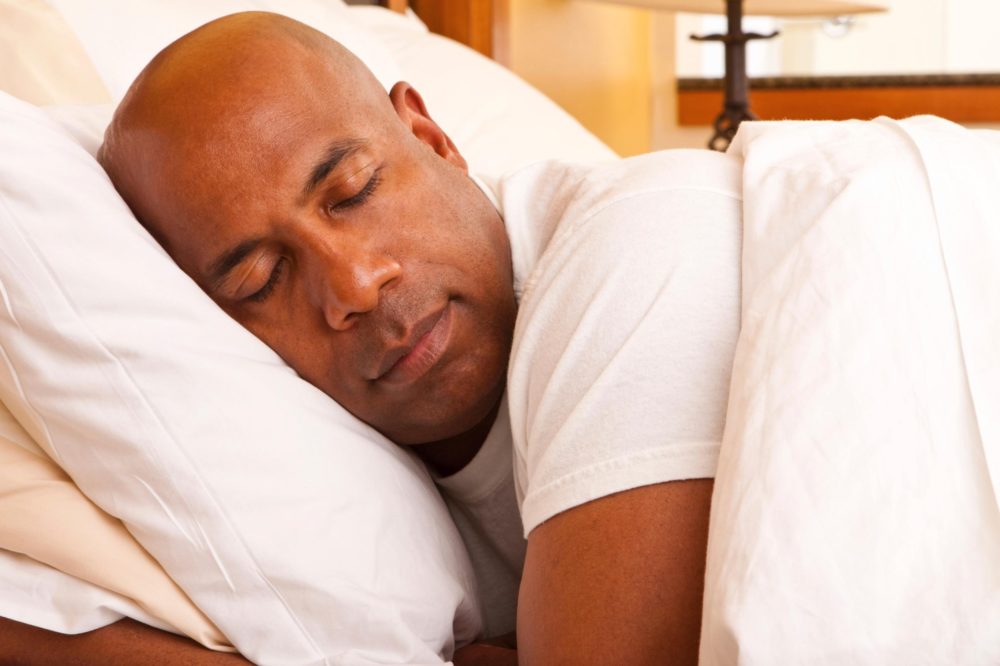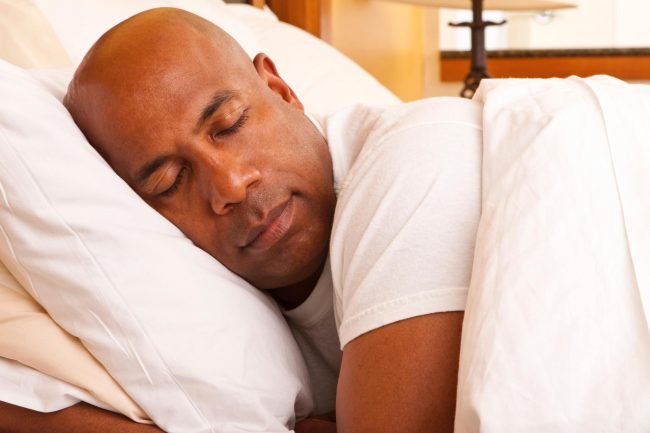
Many people don’t realize that proper sleep is vital to losing weight as it is the body’s time to rejuvenate and rest. (Courtesy of gmaonline.com)
The secret to losing weight might be easier than you think – and something you are already doing.
Many believe that the only necessary factors to shedding pounds are eating a healthy diet and exercising regularly, however there is another important influence that often gets undermined.
Beauty sleep is vital to glowing skin, a clear complexion and enhanced energy. Sleep is also essential to maintaining a healthy weight and promoting necessary weight loss.
The key is to balance your lifestyle so that you are setting aside enough time for the sleep your body needs to operate at its optimum level.
If you are eating a balanced diet and getting sufficient exercise but can’t seem to shed those last few pounds, chances are that you are not getting sufficient, restful sleep.
To achieve successful weight loss, develop sleep habits that easily fit into your everyday lifestyle and don’t demand a great deal of discipline. The easier it is to continue with the habit, the longer you’ll stick with it and the better your bottom-line results will be.
Sleep deprivation is an important factor in weight loss for women of every age because a sleep deficit can cause a hormonal imbalance.
The two hormones that are primarily affected are leptin and ghrelin. The function of these hormones is to work together to control the body’s feelings of hunger and fullness.
Ghrelin, produced in the gastrointestinal tract, stimulates appetite, while leptin, produced in fat cells, sends a signal to the brain when you are full.
Have you ever had a sleep deprived night followed by a day that no matter what you eat it neither satisfies nor fills you up?
Sleep is the body’s time to rest and repair, and produce essential hormones.
Lack of sleep causes leptin levels go down and as a result you don’t feel as satisfied after you eat.
Sleep deprivation also causes ghrelin levels to rise, which stimulates the appetite and makes you crave more food.
Getting a sufficient amount of sleep significantly decreases appetite during waking hours. Since the body is recuperating and regenerating when we’re asleep it doesn’t need as much fuel (food) to function during the day.
Sleep also relaxes the body, which is also important for weight loss. High stress levels cause the body to produce high amounts of a hormone called cortisol, which increases appetite and promotes the formation and deposition of fat in our body, particularly in the areas around the stomach and on the face and neck as well.
Proper sleep prevents this from occurring as it reduces stress and calms the mind and body.
In simpler terms, ghrelin is the ‘yes’ hormone that tells you when to eat while leptin is the ‘no’ hormone and tells you to stop eating.
When you are sleep deprived, you have more ghrelin hormones encouraging you to eat and less leptin hormones to tell you ‘no’.
The result? Your body craves more comfort food and you’re prompted to grab a bag of potato chips for a snack rather than an apple.
In addition, your metabolism slows down and doesn’t function properly when you lack sleep, which causes you to consume more calories than you are burning.
These poor food choices paired with a lack of exercise and low energy from insufficient sleep ultimately result in a growing waistline and a higher number on the scale.
Additionally, extending the amount of hours you sleep each night prohibits you from consuming extra calories that you might eat if you were awake. Since we don’t eat in our sleep, we are limiting our calorie intake by getting more rest.
The solution to this dilemma is to achieve about 7.5 hours of sleep each night, the average amount of sleep needed for the body to restore and feel fully energized and alert. Experts agree that small changes can add up to big results when coupled with restful sleep.
Consider these simple steps:
1. Avoid caffeine after 2 p.m. by switching to decaf so your body can power-down for a good night’s sleep
2. Work in 20 minutes of low-intensity exercise (think easy walking) to improve sleep quality
3. Opt for a light snack before bed rather than carb-loaded meals and sugary treats.
If you find you slip up here and there, don’t get frustrated.
It is important that you continue to make these small changes in your daily routine until you have achieved your weight loss goal.
However, it is also important to keep up with these habits after you have reached your ideal weight in order to see long term improvements and to continue to lead a healthy lifestyle.
Proper sleep is very important to maintaining a healthy lifestyle and is an easy, no cost way to experience serious results in your weight-loss efforts.









